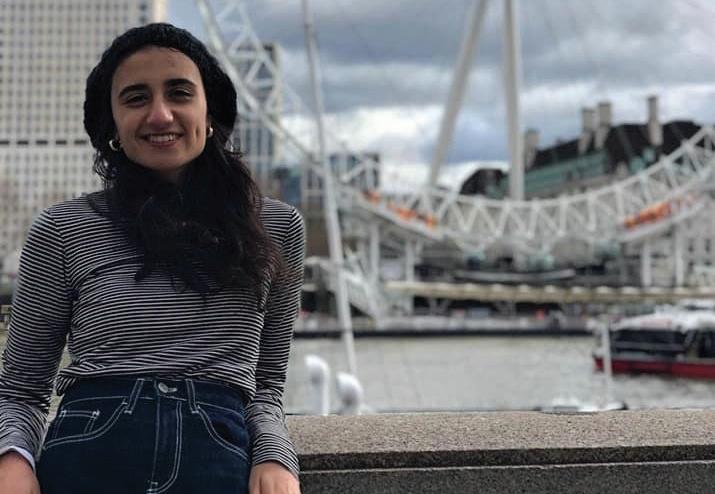
3 minute read
Mizrahi Stories Highlight Newest Campus Campaign by CAMERA
CAMERA'S NEWEST CAMPUS CAMPAIGN BY ELIANA RUDEE, JNS.ORG
Advertisement
In its new campaign, the Committee for Accuracy in Middle East Reporting and Analysis (CAMERA) celebrates Mizrahi Jews on college campuses around the world, encouraging students to host and plan a variety of events and speakers, and write articles for their newspapers that demonstrate the diversity of the Jewish world.
CAMERA fellows are also encouraged to share their families’ stories, which frequently include courageous escapes from violence and persecution, “to counter common canards that are fueled by ignorance, such as the ridiculous claim that some Israel advocates’ efforts to highlight the plight of Mizrahi Jewry denote “Mizrahiwashing.”
Michal Amar, 25, a CAMERA fellow at the Hebrew University in Jerusalem currently studying Middle Eastern studies and communication, comes from a traditional Moroccan and Iraqi home. Originally from Yavneh, Israel, she has been learning more about her heritage through her grandmother’s stories of living in Casablanca and of the good relations with their Muslim neighbors that existed prior to 1948. She is also concentrating on how the Mizrahi community might be the bridge to make peace with Israel’s neighbors due to their connection and common grounds with Arabs and Muslim countries.
Part of her grandfather’s family, she explained, prayed to come back to Jerusalem, and for the renewal of the Jewish temple and homeland, sending their son to take part in a Zionist camp at age 12, where he helped to build a kibbutz in pre-state Israel and later fought in Israel’s war of independence. He then returned to Morocco to marry Amar’s grandmother and helped the family make aliyah to Israel in 1956.
“They all escaped the police so they wouldn’t get caught, left their houses as is, and went on a ship that sailed for a week and nearly sank in the Mediterranean Sea,” Amar said. “It was also a huge risk because the ship that left Gibraltar right before their ship [called Egoz] sank and many people died.”
On her Iraqi side, related Amar, her family spoke of the “Farhud” pogroms on the eve of the Shavuot holiday in 1941, which led them to flee Iraq for Israel.
Amar hopes to bring these stories, which she maintained are more well-known in Israeli society but less highlighted in an academic setting, compared to the stories of Palestinian Arabs.
“My entire life I was taught to be an Israeli” — and she is glad for it, she said — “but I never really engaged with my Mizrahi culture, which seems very relevant to nowadays atmosphere in the Middle East. Now, the stories of my ancestors give me an opportunity to get to know my roots and explore my identity as a Jewish, Mizrahi and Israeli woman,” she continued.
In an article that she is writing as a part of her fellowship with CAMERA, Amar plans to highlight “the deep connection of the Mizrahi Jewish Community to Zionism, their participation in the establishment of Israel and why they still are Zionist despite the racism they experienced from the Ashkenazi hegemony in the early stages of Israel.”
“I think this is very important for Israelis to acknowledge the huge contribution of the Mizrahi Jewish community to the establishment of Israel because Zionism is mostly related with the Ashkenazi Jewish community up until this day,” she said.
“In addition, I think the story of Mizrahi Jews needs to be spoken in the world because there is a huge focus on Palestinian refugees who fled from Israel, while there is an absolute ignorance from the Mizrachi










